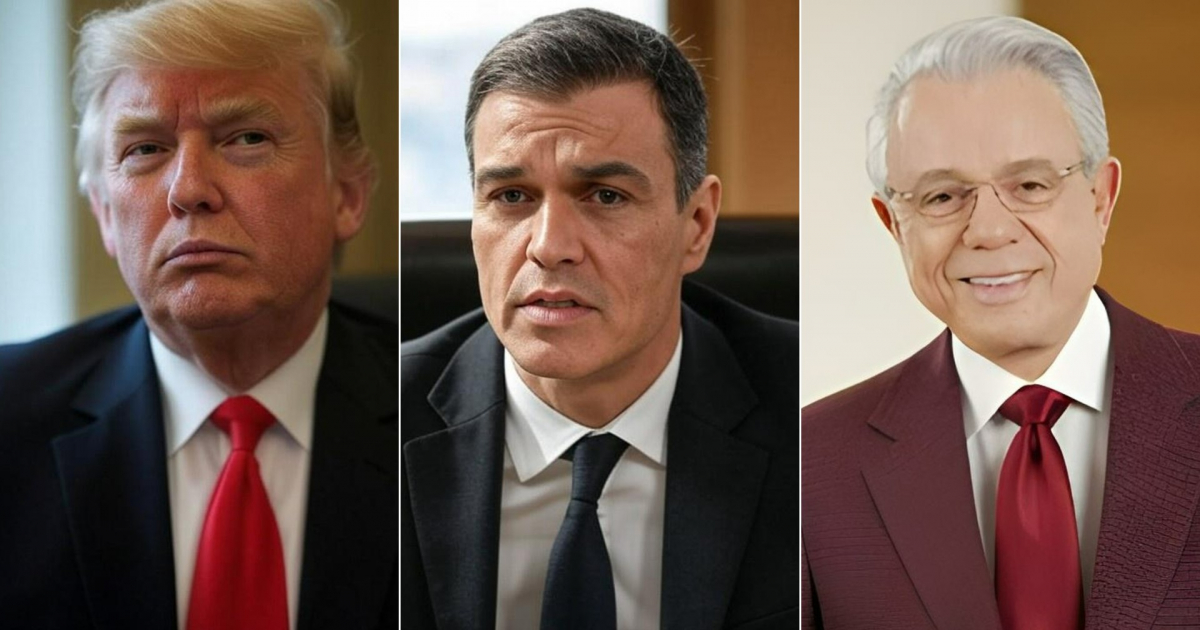
Related videos:
With Donald Trump's return to the White House and the appointment of Benjamín León Jr. as ambassador to Spain, the relations between Washington, Madrid, and Havana are entering a new phase. León does not arrive to spread smiles or build bridges. His mission, clear and straightforward, may be to dismantle the complicities that Spain has maintained for decades with the Cuban regime, especially under the government of Pedro Sánchez. It is no coincidence that a Cuban exile, a symbol of opposition to Castroism, is leading this task. Trump, with a government that will include five Cuban Americans in key positions, makes it clear that his policy toward Cuba will be one of confrontation and that he will not tolerate allies of the regime, such as Spain, continuing to look the other way.
Spain has played an ambivalent role with Cuba for decades. The weight of history is undeniable: the island was its last major colony, and this continues to influence a relationship marked by paternalism and nostalgia. For many in Spanish politics, Cuba is not just a trading partner, but a "younger sister" deserving of special treatment. This has allowed Madrid to maintain a rapprochement with Havana even during the darkest moments of the Castro regime.
But history is not the only factor. Rejection of "American imperialism" has also been key, especially among the Spanish left, which sees Cuba as a symbol of resistance to American power. For Pedro Sánchez, the PSOE, and their communist government partners, this discourse has become a mantra, further justified by economic diplomacy that prioritizes dialogue over confrontation.
However, beyond the rhetoric, what truly underpins this relationship are economic interests. Spain is one of Cuba's largest trading partners and the main European investor on the island. Hotel chains such as Meliá, Iberostar, and NH have a dominant presence in the Cuban tourism sector, which is controlled by the regime through GAESA, the military conglomerate. These companies generate millions of euros in revenue, benefiting both their shareholders and the Cuban government. Furthermore, Spain exports essential products to Cuba, ranging from food to machinery. All of this means that Madrid has much to lose if relations with Havana become strained.
With Trump back, things will change. Benjamín León is not just an ambassador; he is a living message. His profile as a survivor of Castroism underscores Washington's narrative: the Cuban regime is responsible for decades of suffering and oppression, and those who support it, directly or indirectly, will be scrutinized. León has a clear task: to pressure Spain to reduce its ties with Cuba and adopt a more critical stance. This will not be easy. For Sánchez's government, breaking ties with Havana would mean confronting the economic interests of Spanish companies and abandoning a foreign policy that has prioritized dialogue.
However, with this appointment, Washington's stance seems clear. The pressure will not be solely diplomatic; it will also be economic. Spanish companies in Cuba could be affected by new sanctions or a tightening of the rules. During his first term, Trump demonstrated that he is not hesitant to impose restrictions, such as Title III of the Helms-Burton Act, which directly impacted firms like Meliá. Now, with such a determined ambassador, tensions could escalate quickly.
Trump has shown his willingness to impose tariffs and sanctions on countries that do not align with his policies. During his first term, he already applied an additional 25% tariff on Spanish products such as olive oil, wine, and cheese, significantly impacting Spanish exports to the United States.
Spain is at a crossroads. Continuing its policy of rapprochement with Cuba could jeopardize its relationship with the United States, while adopting a more critical stance towards Havana would be a blow to its economic interests. Furthermore, a sudden shift could be seen as a capitulation to Trump, something politically costly for Pedro Sánchez. However, the reality is that with Benjamín León in Madrid, it will become increasingly difficult to maintain the balance.
Time will tell whether Sánchez and his government will choose to maintain their relationship with the Cuban regime or yield to the pressure of a more aggressive Trump and an ambassador determined to cut old complicities. What is clear is that León is not coming to negotiate. He is coming to impose a new reality. And this time, Spain will have to choose a side.
Filed under:
Opinion article: The statements and opinions expressed in this article are the sole responsibility of the author and do not necessarily represent the viewpoint of CiberCuba.